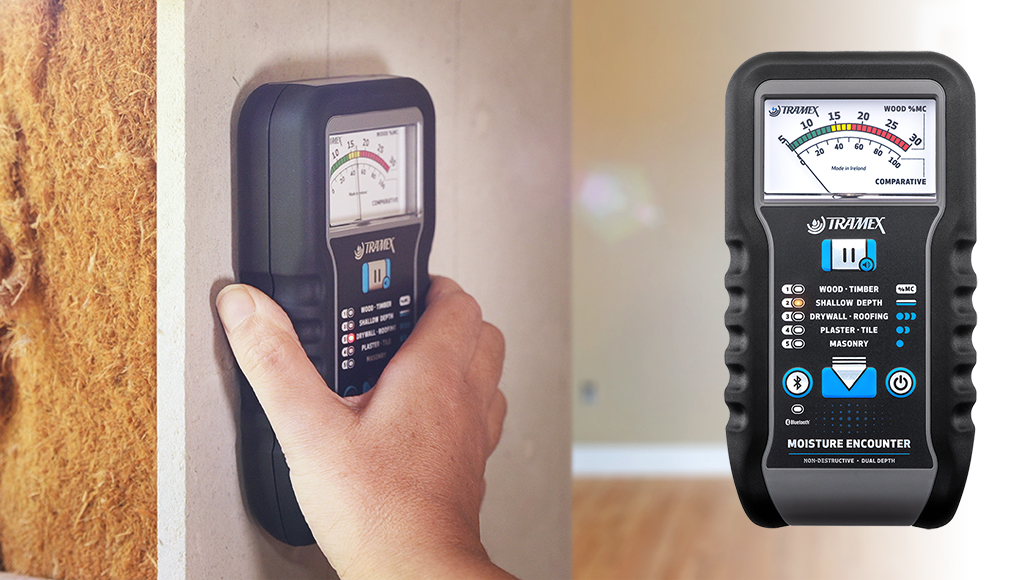The Ultimate Overview to Wetness Meters: A Comprehensive Summary and Exactly How They Can Save You Cash
Dampness meters serve as indispensable tools in detecting and monitoring moisture material in products, aiding in stopping costly damages and ensuring the top quality of products. Recognizing the nuances of different types of moisture meters, their applications, and the potential cost-saving benefits they supply can be a game-changer for professionals and companies alike.
Sorts Of Moisture Meters
Different sorts of dampness meters are available for different applications in various sectors. One typical kind is the pin-type dampness meter, which gauges the electric resistance between two pins placed right into a product. This kind is ideal for timber, drywall, and other building materials. Pinless moisture meters, on the other hand, use electro-magnetic sensing unit plates to check a bigger location without creating damages to the product's surface area. Moisture Meter. These meters are excellent for quickly evaluating wetness levels in large areas such as floorings and wall surfaces.

Infrared dampness meters determine the thermal buildings of a material to identify its moisture material non-invasively, making them valuable for applications where pin or pinless meters may not be appropriate. Understanding the different kinds of moisture meters offered can aid industries select the most ideal tool for their certain dampness measurement requirements.

Advantages of Using Dampness Meters
Moisture meters offer vital benefits in precisely checking and analyzing dampness levels in diverse materials and environments. One of the key advantages of utilizing moisture meters is the prevention of possible damages triggered by excess moisture.
Furthermore, making use of dampness meters can lead to boosted energy performance. In agricultural setups, moisture meters play a critical function in maximizing plant returns by enabling farmers to check soil dampness levels and make notified watering choices.
How to Pick the Right Moisture Meter
Choosing the appropriate wetness meter entails considering vital elements such as product compatibility, measurement array, and calibration accuracy. When picking a dampness meter, it's necessary to make certain that the meter appropriates for the certain product you will certainly be screening. Different materials have varying electric residential or commercial properties that can impact dampness analyses, so picking a meter designed for your material is important for precise outcomes. In addition, consider the measurement series of the moisture meter. Guarantee that the meter can discover wetness degrees within the array needed for your applications. Calibration precision is another vital aspect to bear in mind. Choose for a wetness meter with reliable calibration to ensure constant and exact readings. Some meters may need periodic calibration adjustments, so recognizing the calibration procedure is vital. By meticulously reviewing these variables, you can pick a dampness meter that satisfies your requirements and gives accurate wetness measurements for your projects.
Appropriate Methods for Dampness Meter Use

Cost Savings Through Dampness Meter Applications
Exactly how can the tactical utilization of moisture meters lead to considerable cost savings across numerous markets? In the agriculture sector, moisture meters help in establishing the optimum time for gathering crops, preventing excess or over-drying wetness that can influence the final product's top quality.
Likewise, in building and construction, wetness meters aid avoid pricey damages by spotting dampness levels in structure products, such as wood or concrete, which can cause structural problems otherwise addressed without delay. By determining trouble areas beforehand, specialists can take corrective steps to stay clear of extensive repair services or substitutes, ultimately conserving time and money.
Additionally, in the food handling industry, wetness meters are crucial for keeping an eye on item quality and making sure compliance with security guidelines. By properly measuring dampness web content in food, makers can protect against spoilage, preserve quality, and lower waste, resulting in significant expense financial savings. On the whole, the strategic application of moisture meters is explanation an important investment that can cause significant cost reductions and enhanced effectiveness throughout different markets.
Verdict
In conclusion, dampness meters are important devices for determining and discovering moisture degrees in various products. By utilizing the right moisture meter and following appropriate techniques, customers can properly protect against expensive damages caused by excess wetness.
Moisture meters offer as vital tools in finding and keeping an eye on moisture content in materials, assisting in stopping pricey damages and making certain the quality of items. Infrared moisture meters determine the thermal residential properties of Click This Link a material to identify its dampness content non-invasively, making them beneficial for applications where pin or pinless meters may not be appropriate.Dampness meters provide very useful advantages in precisely assessing and monitoring wetness degrees in varied materials and atmospheres. In agricultural setups, moisture meters play a vital duty in optimizing crop yields by allowing farmers to check dirt moisture degrees and make notified watering choices.In verdict, dampness meters are valuable tools for measuring and spotting wetness levels in different products.
Comments on “The Ultimate Overview to Picking the Right Moisture Meter for Your Needs”